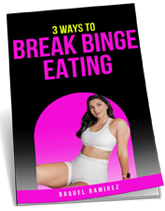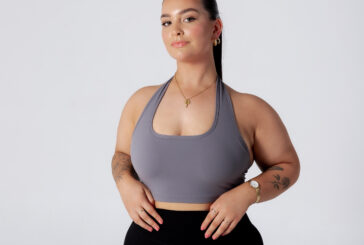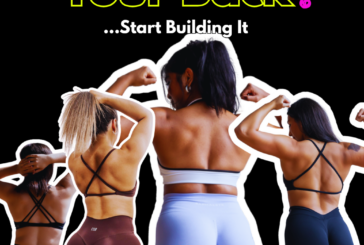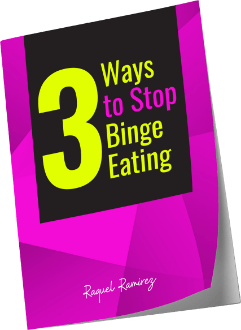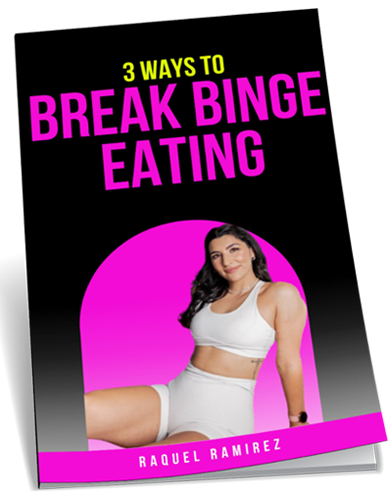Disclaimer: This information is for education purposes only, it does not constitute legal, financial or medical advice. Please speak to a medical and natural health practitioner in relation to any of the information below.
Note: supermarket quality supplements are literally the dog poop of the supplement industry. If you want the best, speak to a naturopath who can help you further.
So, why do you we actually use supplements?
We can break it down into main categories of immunity, digestion, sleep, performance/recovery, inflammation, stress and detoxification. What’s actually going to work for you though really does depend on WHO you are, your personality traits, behaviours and DNA.
There’s hundreds of supplements and they’re costly! There’s so many supplements that’s it overwhelming. I’m sure you’ve got a stack of supplements somewhere in your kitchen only to have them expire year after year? Or maybe you’re taking all of them and feeling worse? This guide is going to save you time, money and space.
I used to think that supplements were unnecessary, a ‘waste of money’ I would’ve said. These days I believe the complete opposite. The right ones can do a world of good. There’s no perfect supplement that ‘everyone should take’ but there’s recommendations that wouldn’t hurt investigating further with someone who can analyse blood work and stool tests.
Also due to soil degradation (loss of soil quality) the vitamin and mineral quality of our fresh food produce is lacking. Someone once said “soil is like the skin of Earth”, it’s been damaged and polluted and it’s not as easy as just adding more soil on top.
Ultimately supplements are used to supplement for where there is deficiency. Without getting bloodwork and maybe a stool test it can be a little bit like Tug-O-War if you have compromised immunity, digestion, performance, etc etc.
Supplement cycling
There are supplements that I cycle depending on the time year and also where I am in my menstrual cycle. Each supplement I list in this article will have notes that you can take away and speak to your health practitioner about if you would like to discuss including them.
Take L-Glutamine for example, I use this as a digestive distress preventative. Personally I have to be careful with how much onion, garlic and certain fruit I eat due to some pretty painful gastro-intestinal bloating. Glutamine can transform into any amino acid that the body requires at any given time AND it repairs the lining of the intestinal walls which can provide relief from IBS related symptoms. I take about 5 to 10g of it when my body communicates to me it’s needed. Sometimes it times of high stress I will also take it as stress depletes many vitamins and minerals and amino acids. Glutamine also eventuates into GABA which is produced in the brain and is a calming neurotransmitter.
I cycle Fish Oil when I know I won’t be eating a lot of oily fish during the week and for skin/scalp care. Omega-3’s are very important for skin, hair, nails but also your hormones and other chemical processes in the body.
Listen to my podcast here (episode 16) to hear why fish oil has helped my scalp!
The other supplement I cycle SEASONALLY is Vitamin D. During the Summer months if you’re spending anywhere between 10 – 30 minutes in direct sunlight you’ll probably be okay without it. However, in the Winter months, it’s a good idea to re-introduce it. Those who are fair skinned and cannot be left in the sun without getting an instant burn should consider taking Vitamin D3 – again, speak to your health practitioner about this.
My last example is Zinc. I have suffered severe and debilitating period pain as a teenage and occasionally at the beginning of my 20s. Over the years and with better nutritional planning, removing gluten and improving sleep – it has improved so much. More recently I have started taking Zinc in my luteal phase as it can provide relief from period pain, the pain is no longer debilitating but sometimes it still is uncomfortable and I can feel the difference with Zinc. I also have raspberry leaf tea a week before predicted menses as uterus support – which I learnt from a natural health practitioner.
LASTLY, check in with your body
Before we get to the supplements, remember to check in with your body before swallowing a whole bunch of things. The internal environment will ALWAYS physically respond in various ways which will allow you to justify whether or not the inclusion of a supplement is of benefit.
Again, ideally getting a full panel of bloods and stool test completed to use and speak with a natural health practitioner about can give you a good insight of what’s happening at a deeper level.
Some things to take note of:
Skin appearance: red-blotchy skin, itchiness, dry skin, skin breakouts, acne
Mouth: hot, dry, constant thirst sensation
Stomach: are you; bloated, cramping, gassy, irritable
Excretion of waste: what is your pee colour? what do bowel movements look/feel like for you? Diarrhoea, constipated?
Temperature: hot, flushed, clammy, lightheaded, fingers and toes cold all the time
Sleep: difficulty falling asleep or staying asleep, menopausal like sleep symptoms (i.e. hot flushes, constant waking)
Mood: bipolar-like moods i.e. “everyday, every-hour is a different mood”
I’m no medical doctor and don’t have a degree in a naturopathy (although I think about it all the time) but I know you can see that I’m making the connection between physical symptoms and your internal problems.
SUPPLEMENTS:
Magnesium
Magnesium is involved in over 300 enzymatic process in the human body for biochemical and metabolic pathways “Emerging evidence confirms that nearly two-thirds of the population in the western world is not achieving the recommended daily allowance for magnesium.”*
You can find magnesium in foods like dark leafy greens, nuts, seeds, fish, beans, avocados and whole grains YET as mentioned in the beginning – the soil quality is very poor and with almost 2/3 of the population being deficient, it wouldn’t hurt to supplement with this.
Did you know? Chronic stress depletes magnesium.
Benefits: Important for bone density, ATP production (energy), key nutrient in calming nervous system and regulating HPA axis, improves function of insulin and thyroid hormone, helps to metabolise oestrogen and reduce PMS symptoms.
A magnesium chelate (magnesium glycinate) is a great form to purchase as opposed to a cheap magnesium chloride form off the supermarket shelf.
*Schwalfenberg, G. K., & Genuis, S. J. (2017). The Importance of Magnesium in Clinical Healthcare. Scientifica, 2017, 4179326. doi:10.1155/2017/4179326
Fish Oil
Supports inflammation, joints, cardiovascular system, skin, hair and nails, brain health and insulin response. Helps manufacture and regulate hormones like oestrogen, progesterone, testosterone, leptin and ghrelin.
Fish oil helps to maintain cell membranes which are made of fats. Provides the essential fatty acids; Omega-3 and 6s*which our bodies cannot make
Note: Fish Oil should NOT have a fishy taste if you were to crack open the capsule. This means it’s rancid and potentially toxic.
*OMEGA 3s = good fats; salmon, avocado, seeds, nuts, extra virgin olive oil, ghee
OMEGA 6s = Processed foods ‘junk food’
Benefits: Inflammation, Detoxification and Immunity
Vitamin D
Vitamin D is a fat-soluble vitamin. Important in overall health such as immune defence, neurological health, blood sugar regulation and prevention of chronic diseases like cardiovascular health and highly underrated as a sleep tool.
Body synthesises it from sunlight and it regulates calcium (bone health). This can be depleted very easily – long winter months without sunlight exposure downregulates immune defence. Which may explain why some of you get sick often during winter.
In Australia, 1 in 4 adults (23%) are deficient in Vitamin D and that stat climbs in Winter seasons for Victorians to 49% (ABS)
If you take the capsule form (D3) do not take it in the night. Vitamin D is stimulating as it works to mimic morning to night cycles with the sun. If you take vitamin D you are telling you’re body the sun is out and therefore the body reads this, stops producing melatonin (which ramps up in the evening and night for sleep) and therefore you won’t feel tired!!
Benefits: Immunity, Sleep and Performance/Recovery
Multivitamin (without FOLIC ACID or IRON)
In general most of us won’t be getting enough vitamins and minerals from the foods we eat for optimal genetic function. This is dependent on a persons dietary behaviours also.
For example someone who eats organic produce, lean cuts of meat and no artificial foods could probably get away without. A person who eats take-away every day, smokes and doesn’t workout regularly could certainly benefit from it.
Note: Never consume it before bed – B vitamins can be stimulating!
Folic acid is also synthetic form of folate and will block detoxification pathways! Which is terrible – to find out more about detoxification read here
Electrolytes (without colours, flavourings)
Our body is an ELECTRICAL SYSTEM. Electrolytes are excreted via sweat, urine, poop and various other bodily functions. When you are low in electrolytes your electrical energy is low.
Critical for regulation of muscle contraction, fluid balance and nerve impulses. Some signs of electrolyte deficiency are irregular heartbeat, mental and physical fatigue, brain fog, frequent urination and urinating within minutes of drinking water, feeling dizzy upon standing and not sweating well.
Benefits: Performance, Stress, Detoxification and digestion
RATIO of potassium : sodium should be 2 : 1 (this is the bodies internal balance)
Note: Electricity carriers; Magnesium, Potassium, Phosphorus, Sodium, Chloride, Calcium. Each iron works in synergy – helping us to USE energy (Krebs Cycle).
VEGANS (WHAT YOU MUST SUPPLEMENT WITH)
Protein
It is well known that vegans don’t consume enough protein. PROTEIN IS the building blocks of DNA. You cannot, not eat protein and expect your body to act in a healthy way. There are plant based plant sources. Not only would a protein powder, BCAAs and EAAs (or even a leucine specific powder) be useful to include in your daily nutritional habits but you can see here some high protein food sources.
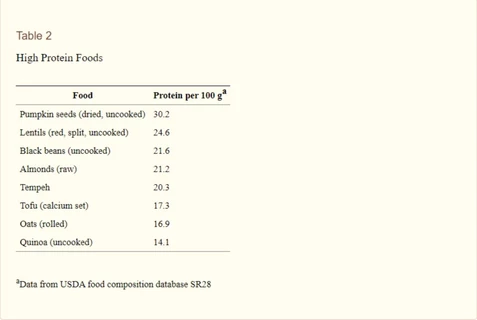
Creatine (optional)
Within this same bracket of protein powder will help to improve ATP-production. Therefore improving performance and overall energy production as ATP is produced within the mitochondria of the cell. Foods rich in creatine are meat, fish and poultry but are excluded from a vegan diet.
The following information provided has been resourced via https://www.ncbi.nlm.nih.gov/pmc/articles/PMC5598028/#CR101) (2017) and Enterprise Fitness Wolfpack Lectures.
B12 THIS IS NON NEGOTIABLE AS A VEGAN
B12 is essential for nervous system function, methylation and DNA synthesis. It’s important for nerves and blood cells to be functional and operational. B12 deficiency can lead to blood and nervous system problems, this can occur from dietary insufficiency, malabsorption AND lack of intrinsic factor as examples.
If you are a vegan, get checked and start with the minimum dose if you are really unsure.
This is a blend of organic flax, sesame, sunflower, coconut oil and evening primrose seed.
The human body requires ESSENTIAL FATTY ACIDS (EFAs). The body cannot make these on it’s own.
– The essential omega-3 fat is called alpha-linolenic acid (ALA).
– The essential omega-6 fat is called linoleic acid (LA).
Omega-3 and omega-6 fats affect our immune system, brain, nerves and eyes.
Unfortunately, being Vegan doesn’t mean everything is healthy and an overconsumption of unhealthy, saturated fats like omega 6s from processed foods will compromise your insulin blood glucose and overall health. In order to maintain a healthy ratio of fats – Udos Oil for vegans is a great option if you are not consuming enough fats.
Zinc
Zinc is an enzyme involved in metabolic processes that relate to DNA stabilisation and gene expression, and is important in cell growth, repair and protein metabolism.
Zinc is not readily absorbed from plant-based foods. It will help with HCL levels (helps the body break down food) therefore will improve digestion of foods being consumed! Another way to improve digestion is add ACV (apple cider vinegar or lemon) to salads or have a shot diluted with water before eating.
Vegans should also look to consume zinc-rich foods such as hemp and pumpkin seeds, and other grains, nuts and beans
Vitamin D
As mentioned, Vitamin D is essential for calcium absorption and bone health, and plays an important role in many physiological processes . While humans synthesize vitamin D from exposure to sunlight. Dietary intakes of vitamin D are low and highlight that it does negatively impact muscle strength as-well as immunity and cognitive function.
Supplementation suggests that Vitamin D is beneficial in injury prevention due to it’s role in calcium absorption.
You cannot rely on consuming supplements to ‘cure’ or ‘fix’ the problems you face or tip the iceberg in performance goals alone. Much like you can’t just stay at home and hope to get paid, there’s work to do and understand.
With health and fitness in mind it’s important to eat a balanced diet with proteins, fats, vegetables, fruits, and carbohydrates that are non-processed, artificially flavoured or coloured, train hard with close-to-perfect technique where possible, lower stress and sleep damn good.
What supplements are you currently taking?

